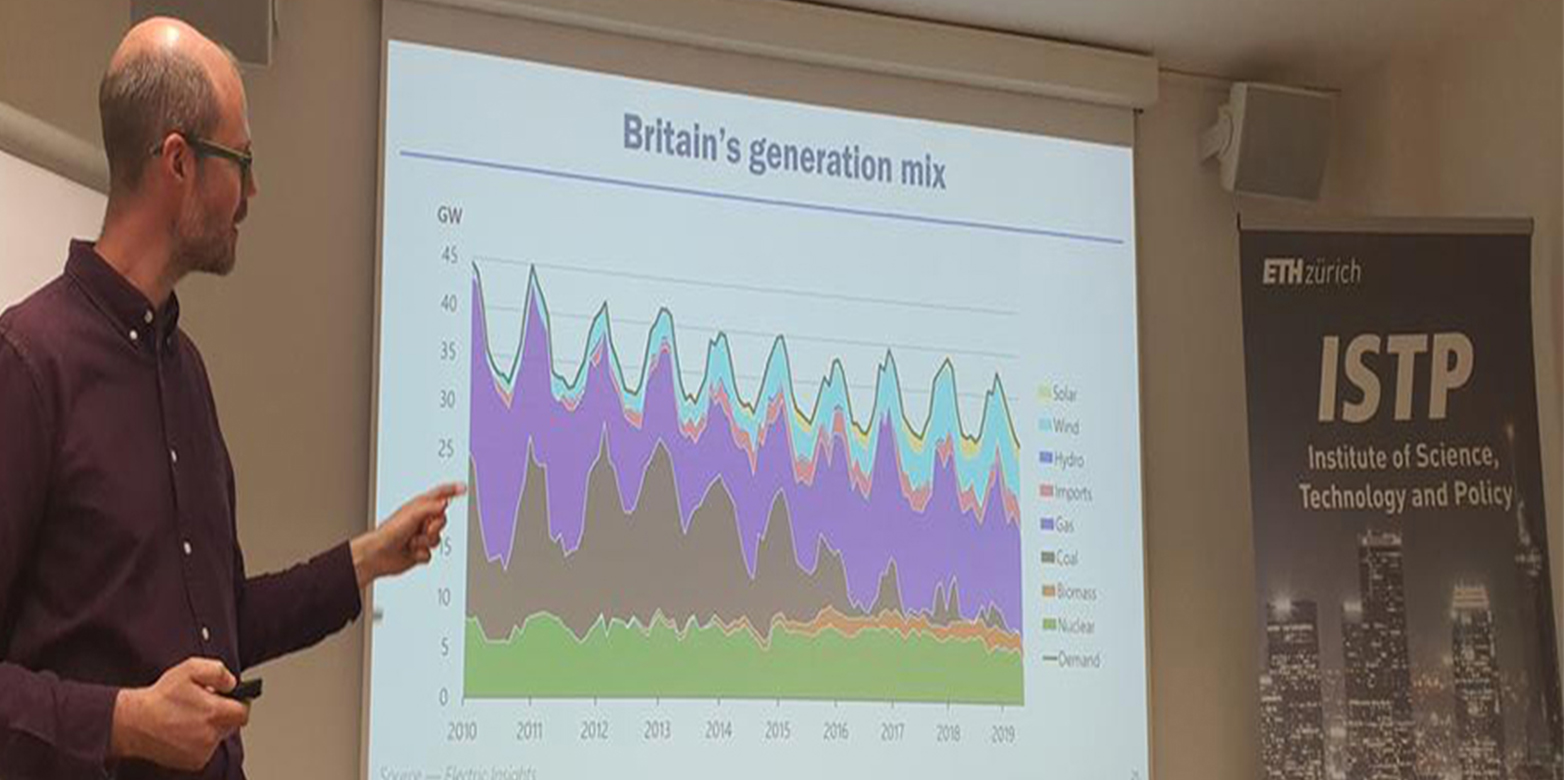Taxes, Subsidies or Regulation: Why have Britain’s carbon emissions from electricity halved?
We would like to warmly thank Dr Iain Staffell, a multidisciplinary scientist working at the Centre for Environmental Policy at Imperial College London, for his visit to the ISTP and his fascinating and insightful talk on what drove Britain's massive power sector decarbonization between 2012-19 and the lessons for other countries with heavy fossil-fuel dependency.
by Felix Zaussinger

At the last ISTP Colloquium, Dr Iain Staffell, a multidisciplinary scientist working at the Centre for Environmental Policy at Imperial College London, presented a method for change attribution and applied it to the UK energy market in order to disentangle the drivers of its rapid decarbonization over the period 2012 - 2018.
Dr Staffell’s talk was all about resolving the question marks associated with the causes of this rapid decarbonisation. What drove down CO2 emissions? What drove up electricity prices? Was it renewables’ subsidies, carbon taxes or even changes in demand? To address these questions, Dr Staffell used two fundamental concepts: an enhanced Merit Order Stack (eMOS) and Shapley theory, and thus, he was able to quantitatively attribute the drivers of UK power market changes for the period 2012-2018. Faced with the question of whether UK taxpayers can afford renewables subsidies, his results pointed to a generally well-accepted hypothesis among economists: renewables policies, particularly targeted at specific technologies, are not particularly economically efficient.
“There are lessons in here that other countries could learn”, Dr Staffell said as a closing point, “to get countries from a trajectory of a slight decline to aggressive emission reductions that are in line with what’s needed to limit global warming to 2°C or even 1.5°C”. Surely, there are also lessons that the UK could learn from others. Tobias Schmidt, Professor for Energy Policy at ETH Zurich posed the final question of the Q&A session: what will happen to the current trajectory of the UK energy market after Brexit? Dr Staffell replied that it will likely make decarbonising harder and cynically concluded: “Once we start eating each other, emissions are going to go down.”
On behalf of the whole ISTP, I would like to cordially thank Dr Ian Staffell for his truly engaging talk. His work addresses one of the most critical issues of your time: to foster a net-zero emissions energy economy by 2050, we really need to figure out which policy instruments work and which don’t – and we need to do so at an unprecedented pace. We hope to soon welcome Dr Staffell back at ETH and continue the exchange on what instruments an effective energy policy designer’s toolbox should ideally entail.
For more information and the full report, please visit our Reports page.